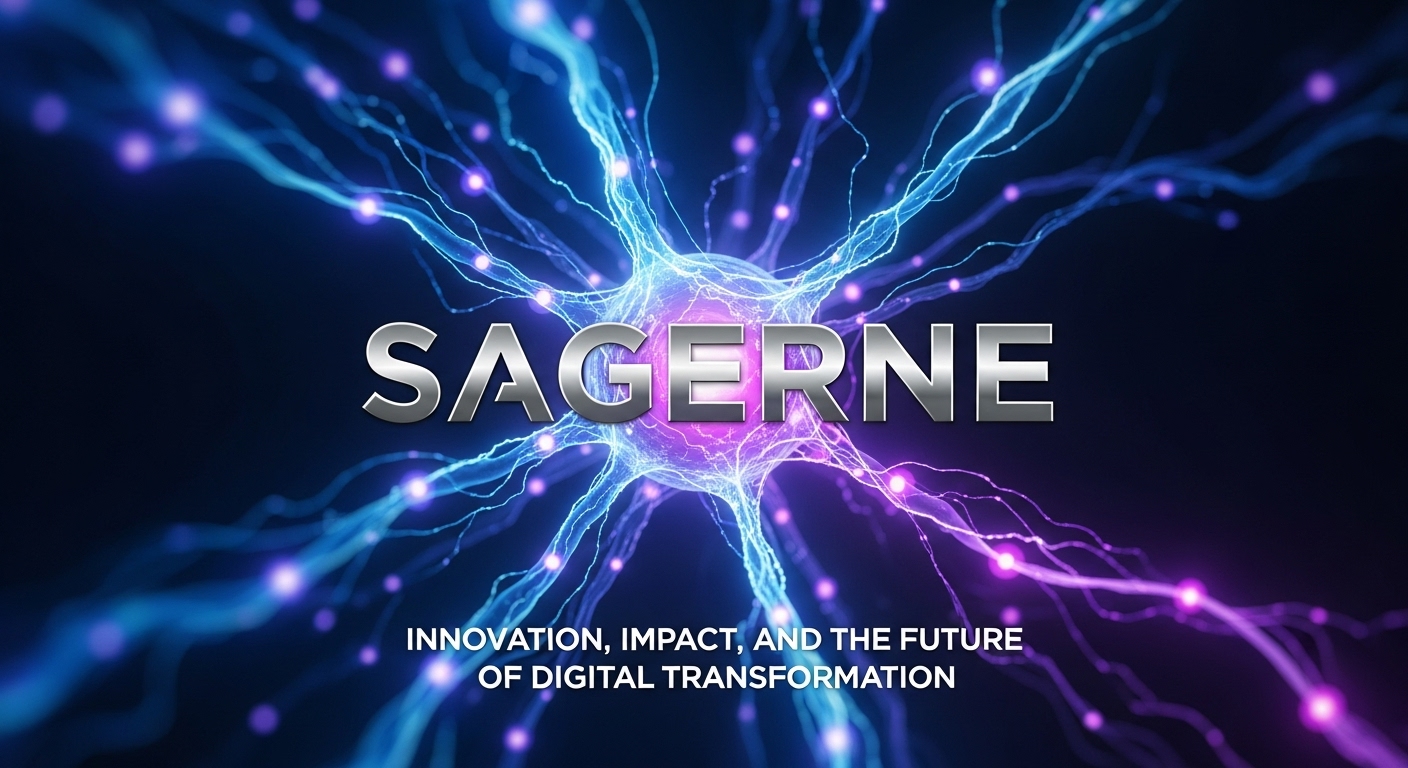In today’s rapidly evolving digital landscape, Sagerne has emerged as a key term symbolizing innovation and efficiency. Businesses and tech enthusiasts alike are curious about what Sagerne truly represents and how it is revolutionizing multiple industries. The term encompasses technological progress, adaptability, and next-level problem-solving in digital ecosystems. Whether you are an entrepreneur, developer, or tech analyst, understanding Sagerne can offer a competitive advantage in adapting to the future of technology.
What is Sagerne?
At its core, Sagerne refers to a conceptual framework or system designed to optimize digital processes through intelligent automation and advanced data management. It represents a combination of strategic technologies aimed at simplifying complex business operations while ensuring scalability and precision.
To better understand how Sagerne functions in the real world, consider the following table:
| Feature | Description | Impact on Business |
|---|---|---|
| Automation | Streamlines repetitive tasks using AI-driven tools | Reduces manual effort and human error |
| Integration | Connects multiple digital systems seamlessly | Improves workflow efficiency |
| Data Intelligence | Uses predictive analytics for decision-making | Enhances strategic planning |
| Scalability | Expands with business growth | Ensures long-term sustainability |
As this table shows, the strength of Sagerne lies in its ability to bring automation, intelligence, and integration together under one unified platform.
The Core Principles Behind Sagerne
Efficiency and Performance
The main driving principle of Sagrne is efficiency. By integrating artificial intelligence (AI), machine learning (ML), and cloud-based solutions, organizations can achieve remarkable speed and precision in executing their processes. platforms analyze huge datasets within seconds, helping businesses make data-backed decisions instantly.
Adaptability
Sagerne is built to evolve with technological advancements. Its modular architecture allows businesses to customize features based on their specific needs. This adaptability makes it an essential tool for industries such as healthcare, finance, manufacturing, and education.
Sustainability
Modern enterprises prioritize sustainability, and supports this goal by minimizing waste, optimizing energy consumption, and reducing redundant digital operations. The technology promotes eco-friendly digital infrastructure without compromising on performance.
Applications of Sagerne in Different Industries
Sagerne in Healthcare
In healthcare, plays a crucial role in managing patient data, automating diagnostics, and improving communication between healthcare providers. The use of predictive analytics enables early disease detection and better treatment plans.
| Healthcare Use Case | Sagerne Functionality | Outcome |
|---|---|---|
| Electronic Health Records | Automated record management | Better accuracy and accessibility |
| Predictive Diagnosis | AI-based analytics | Early disease prevention |
| Patient Communication | Real-time digital platforms | Improved patient satisfaction |
Sagerne in Finance
The finance sector benefits immensely from . It enhances fraud detection systems, automates transactions, and ensures compliance with global financial standards. By using intelligent algorithms, financial firms can detect anomalies faster and protect customer data more effectively.
Sagerne in Manufacturing
In manufacturing, Sagrne optimizes the entire production cycle — from supply chain management to quality control. Its predictive capabilities allow for better maintenance scheduling, reducing downtime and operational costs.
Benefits of Implementing Sagerne
-
Enhanced Decision-Making:
By processing real-time data, empowers leaders to make informed and strategic decisions. -
Cost Reduction:
Automation minimizes the need for manual labor, thus lowering operational expenses. -
Improved Security:
Advanced encryption and monitoring systems ensure data protection across all channels. -
Customer Satisfaction:
Personalized and fast digital experiences lead to higher user engagement and loyalty.
Sagerne and Artificial Intelligence
One of the defining characteristics of Sagerne is its integration with AI. This combination allows systems to learn continuously, predict outcomes, and adjust automatically based on user behavior. The synergy between and AI makes businesses more resilient and adaptive to changing environments.
AI-powered systems are already being used in predictive maintenance, automated customer support, and real-time analytics. These advancements demonstrate how AI transforms into a smart, self-evolving platform that goes beyond basic automation.
Challenges in Implementing Sagerne
Despite its vast potential, organizations may face challenges when integrating into their workflows. These include:
| Challenge | Description | Possible Solution |
|---|---|---|
| High Initial Costs | Setting up the infrastructure requires investment | Adopt phased implementation |
| Data Privacy | Managing sensitive data securely | Use encrypted storage and secure APIs |
| Skill Gap | Lack of trained professionals | Offer workforce training and certifications |
These challenges can be overcome with proper planning, investment, and training programs designed to familiarize teams with the technology.
Future of Sagerne
The future of Sagerne is promising, as it continues to evolve alongside emerging technologies like quantum computing, blockchain, and 5G. Experts predict that will soon become an integral part of smart cities, autonomous systems, and intelligent networks.
As industries continue to digitize, Sagerne’s ability to unify data, systems, and people will play a crucial role in defining business success. With advancements in AI and automation, may soon serve as the backbone of all future digital ecosystems.
Comparing Sagerne with Traditional Systems
| Aspect | Traditional Systems | Sagerne-Based Systems |
|---|---|---|
| Data Handling | Manual and time-consuming | Automated and real-time |
| Decision-Making | Based on past data | Predictive and proactive |
| Integration | Limited interoperability | Highly interconnected |
| Scalability | Difficult and costly | Effortless and cost-effective |
The comparison clearly shows how Saerne surpasses traditional systems in flexibility, intelligence, and efficiency.
Why Businesses Should Adopt Sagerne
Businesses that embrace gain a competitive edge through:
-
Accelerated digital transformation
-
Improved data transparency
-
Better resource utilization
-
Greater innovation and agility
Organizations that delay adoption may struggle to compete in an increasingly data-driven marketplace.
Conclusion
In conclusion, Sagerne represents the next frontier of digital transformation — a synthesis of automation, intelligence, and adaptability. By adopting this framework, industries can optimize workflows, enhance decision-making, and prepare for future technological shifts. The potential applications of are vast and continuously expanding, making it an essential component of modern innovation strategies.
As technology continues to evolve, understanding and leveraging will be key for organizations aiming to stay relevant in a dynamic, competitive world.

